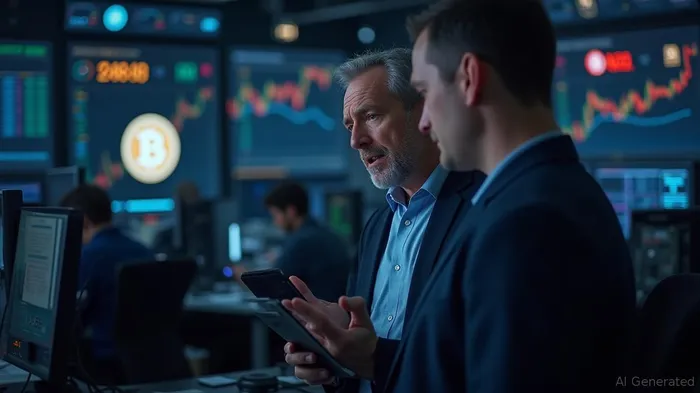GameStop Invests $1.75 Billion in Bitcoin Amidst Deteriorating Core Business
GameStop (GME) recently made a significant move by investing $1.75 billion in Bitcoin. This investment was not related to its core businesses such as games, e-commerce, or streaming. The company announced a zero-coupon convertible note offering, which may be used to fund further Bitcoin purchases. GameStopGME-- has already acquired 4,170 BTC, valued at approximately $450 million. The company appears to be following the strategy of MicroStrategyMSTR-- (MSTR), which has also made substantial investments in Bitcoin. However, unlike Michael Saylor, the CEO of MicroStrategy, GameStop lacks key elements that made Saylor's strategy successful.
In 2020, Michael Saylor converted a $250 million corporate reserve into Bitcoin. He described cash as a "melting ice cube," given the Federal Reserve's trillions in printing, near-zero interest rates, and rising inflation. Bitcoin's fixed supply made it an attractive hedge. This move was bold and strategic for a profitable company with consistent cash flow and limited growth prospects. GameStop, on the other hand, is facing a deteriorating core business and is more of a meme stock without a competitive advantage. The Bitcoin purchase seems more like a desperate move rather than a strategic decision.
GameStop's $1.75 billion note sale introduced additional risk rather than mitigating it. These zero-interest notes are convertible into stock, which means current shareholders face dilution. This short-term financial boost comes with long-term costs. In contrast, MicroStrategy used its debt offerings to aggressively accumulate BTC during bullish cycles, backed by a clear narrative and strong balance sheet support. GameStop does not have this level of financial stability or strategic vision. Its move into Bitcoin feels more like a gamble without the necessary cash flow or conviction that made Saylor's strategy effective.
When Saylor invested heavily in BTC, it was seen as visionary. He supported his decision with education, conviction, and a business model that could handle volatility. He integrated Bitcoin into the company's brand. GameStop has not done this. It has not communicated a clear story, built the necessary infrastructure, or clarified whether Bitcoin is a treasury asset or a marketing ploy. The market is now questioning the sincerity of GameStop's move.
The timing of GameStop's investment is also unfavorable. The crypto market is already sensitive to macroeconomic shocks. Institutional buyers are cautious, ETFs are reshaping market flows, and regulatory clarity is inconsistent. For a retail stock already under scrutiny, loading up on crypto at this time does not appear bold; it looks desperate. Michael Saylor made Bitcoin a conviction trade and reshaped his company around it. GameStop is attempting to replicate this strategy but lacks the balance sheet, leadership, and long-term vision. Investors have noticed, and as a result, GME stock has been punished rather than praised.
GameStop's Bitcoin experiment has not won over analysts. According to the latest data, only one analyst has issued a formal rating on GME stock in the last three months. Wedbush’s Michael Pachter gave the stock a rare Sell rating with a $13.50 average price target, implying a significant downside from current levels. The AI model from TipRanks takes a slightly more optimistic view, maintaining a Hold rating with a $30 price target, suggesting a potential upside of 38.15%.

Quickly understand the history and background of various well-known coins
Latest Articles
Stay ahead of the market.
Get curated U.S. market news, insights and key dates delivered to your inbox.

Comments
No comments yet